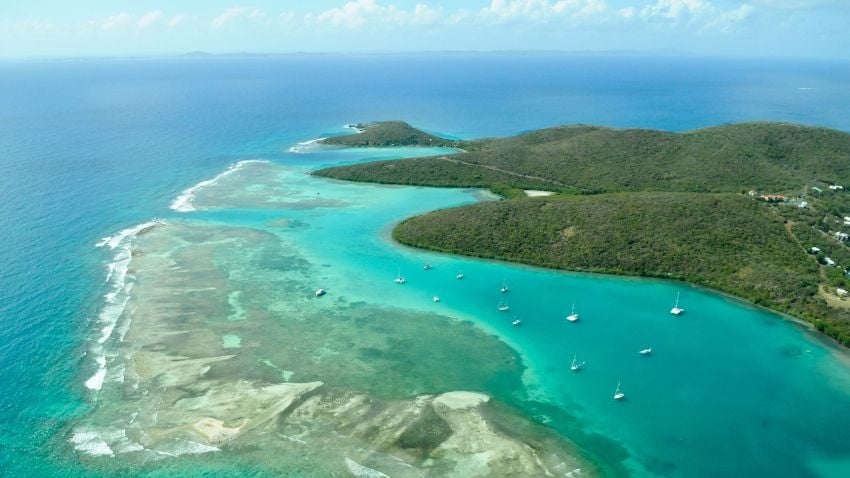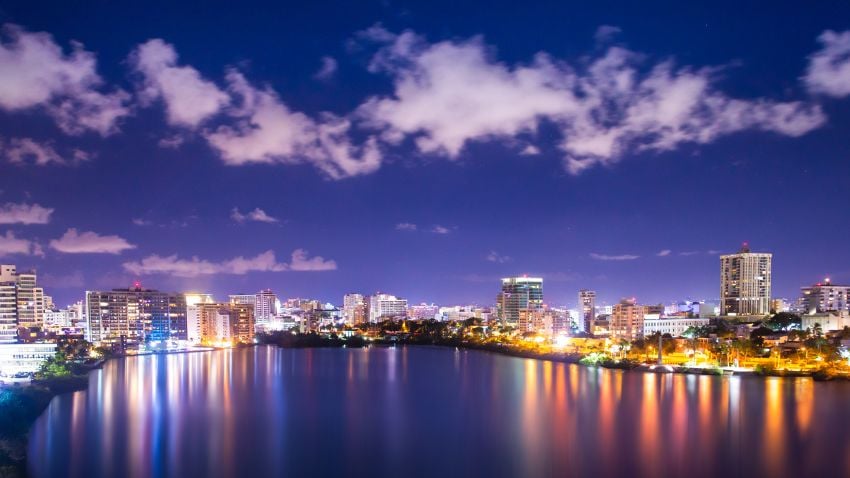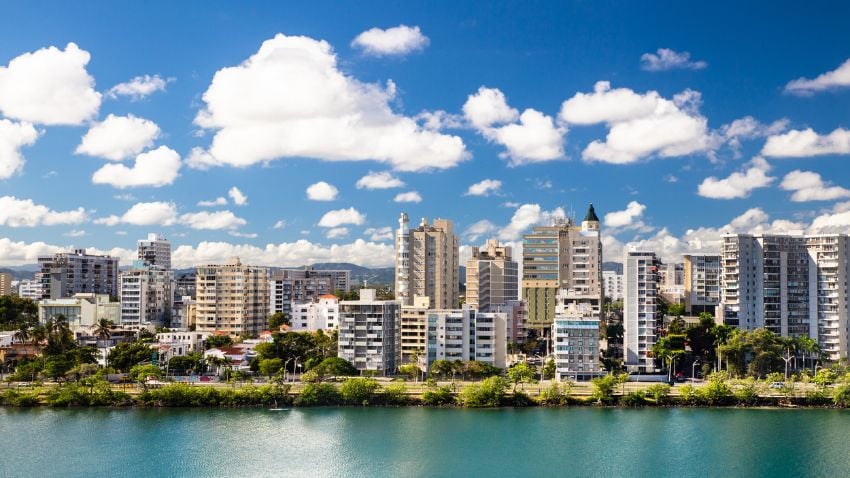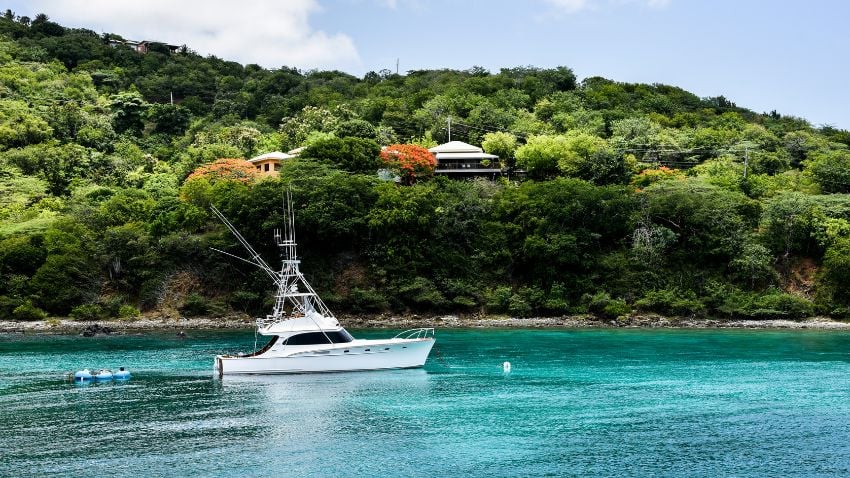Top Things To Do In Panama In 2026
Panama’s geographic size is modest, but its global relevance is not. The country connects two oceans and two continents, operates on a dollarized...

4 min read
Many still consider America “The Land of the Free and The Home of the Brave.” As much as these people claim that America is the best country on the planet to do business and prosper, the harsh reality seems quite different. No matter your income, you will hardly pay little taxes, and living costs are brutal in many states. All in all, making ends meet, especially as a regular worker, is complex. Besides, let’s not talk about “freedom” because the last couple of years have proven that freedom applies only to some situations and selected individuals.
Despite this general rule, not every place in the US is like California, New York, or Chicago. Some States are fighting against the woke movements, not only in terms of individual rights but also in terms of taxes. The Caribbean Island of Puerto Rico has been for a long time considered a tax haven or at least a tax-friendlier territory as opposed to other Western countries. Puerto Rico might be an excellent option if you are considering a new jurisdiction to save on taxes and secure your new life abroad. Keep reading to find out more.

Condado Beach, San Juan, Puerto Rico
In 2012, this territory passed Acts 20 and 22 to attract foreign investment and grow the island's economy. Consequently, many high-network individuals have moved to increase further and protect their wealth. These acts offered various benefits such as zero income tax or, in some less fortunate cases, a low 4 percent rate. However, these regulations have helped to fight unemployment by attracting service businesses such as hedge funds, consulting, or legal firms. That is why Act 20 is also regarded as the “Export Services Act.” The tax incentives for businesses are stunning, considering that you may only pay a 4 percent corporate income tax.
Contrary to other countries, Puerto Rico seems ideal if you want your business to snowball. It is crucial to know what businesses are considered qualified to benefit. Even though the list is long, here are some examples:
Related content: Residency In The British Virgin Islands A Tax Haven Option

One of the many beautiful places to visit while in Puerto Rico with your family
Act 60 came into existence for many reasons, such as classifying the incentives by economic sectors, establishing the legal and administrative frameworks to request, evaluate and approve incentives, and harmonizing taxes to provide the same tax benefits applicable to all the sectors. The incentive program was also implemented to help boost other sectors, such as agriculture, the visitor economy, and manufacturing.
Now another question you might ask is, can only corporations benefit from Act 60's regulations? Not at all! If you plan on increasing your individual wealth, Puerto Rico has opportunities too. Whether your income source is crypto or stocks, thanks to the Investor Resident Individual Tax Incentive, you could enjoy a total tax exemption on capital gains, interest, and dividends as an individual investor. The caveat is that you can’t qualify unless you have not lived in Puerto Rico in the last ten years. On top of that, you must buy a property on the island.

Condado Beach San Juan Puerto Rico
Now that you have gotten the gist of Act 60 let’s go deeper to see what requirements you must meet to be eligible. Firstly, you must become a bona fide resident. You must integrate to be like the Americans who are already paying low taxes and experiencing the island’s culture and cuisine. At the end of the day, the government is looking for high-net-worth individuals to invest in infrastructure and offer jobs to locals. Here are the tests you must pass to be considered a bona fide resident.
Firstly, the Presence Test. Like most jurisdictions, you must live on the island for at least 183 days of the tax year. Only that way will you avoid problems with the IRS. As long as you spend fewer days in the mainland US than in PR, you are good to go.
Secondly, the Tax Home Test. Again, the IRS sets the rules. According to the IRS, a tax home is a place where you are permanently or indefinitely engaged to work as an employee or freelancer. In other words, tax home and residency can be two distinct concepts. Thus, you must turn PR into your tax home, which will be your basement.
Thirdly, the Residence Test. You must buy a property that will be your primary residence. Once you move, you have a time frame of two years to do so. Integration and commitment are crucial if you want to start a new life here.
Fourthly, the Closer Connection Test. In other words, you must prove to the IRS that your connection to Puerto Rico is stronger than anywhere else in the States. Your family members, where you vote, where your personal belongings are, and other factors play a fundamental role. The fewer connections you have with the mainland US, the less likely the IRS will go after you.
.jpg?width=850&height=478&name=San%20Juan%2c%20Puerto%20Rico%20(2).jpg)
San Juan, Puerto Rico
Puerto Rico has historically been a manufacturing-based economy, but Act 60 has been enacted to make export services the main economic driver. Above is a list of some suitable company types that can enjoy these low taxes. A 4 % corporate income tax is way more desirable than the 21 % you would have to pay in the US mainland. As an export-service business, keep in mind that your company must avoid doing business with other corporations based on the island. You must do this to avoid losing the tax benefits.
To wrap up this article, let’s see a few more important facts to keep in mind. If you are a US citizen, keep in mind that you are subject to US tax on your worldwide income no matter where you live. Fortunately, upon becoming a bona fide resident of Puerto Rico, you pay no tax on your Puerto Rico-sourced income, but instead just Puerto Rican income tax. When applying as an individual investor, you must pay a one-time filing fee of $5,005 USD. Plus, you are obliged to donate at least $10,000 USD to charity. Namely, $5,000 USD will go to one accredited by the PR government and the other $5,000 USD to any charity you like. Unlike Trusts, you or your relatives can’t be the owners of these entities.
Related content: The Basics Of How To Get A Second Passport Or A Second Residency

Culebra Island, Puerto Rico
All in all, even though the territory is not living at its best due to its debt and little tax revenue, the government's strategy to attract wealth is efficient. Depending on your mentality and your level of commitment to a new primary residence, using the dispositions of Act 60 might be a smart move to protect and increase your wealth. Anyway, if you need more help, I have been helping ex-pats for multiple years and know the ins and outs of living abroad and wealth protection. Contact me, and I will personally find the best method and tools to help you secure your new life abroad.
If you want the best intel from the expat world, including profitable offshore opportunities, little-known tax-saving strategies, and hard-won insights on immigration, passports, and Plan-B residencies, all delivered to your inbox every single week, then join our daily correspondence, EMS Pulse®. Currently enjoyed by over 84,000 expats and expat-hopefuls worldwide. Fill in the form below to join our newsletter free:

Written by Mikkel Thorup
Mikkel Thorup is the world’s most sought-after expat consultant. He focuses on helping high-net-worth private clients to legally mitigate tax liabilities, obtain a second residency and citizenship, and assemble a portfolio of foreign investments including international real estate, timber plantations, agricultural land and other hard-money tangible assets. Mikkel is the Founder and CEO at Expat Money®, a private consulting firm started in 2017. He hosts the popular weekly podcast, the Expat Money Show, and wrote the definitive #1-Best Selling book Expat Secrets - How To Pay Zero Taxes, Live Overseas And Make Giant Piles Of Money, and his second book: Expats Guide On Moving To Mexico.

Panama’s geographic size is modest, but its global relevance is not. The country connects two oceans and two continents, operates on a dollarized...

Honduras’ newly elected president, Nasry Asfura of the conservative National Party, was sworn in on January 27, 2026. The election, held on November...

For a growing number of Americans, cost-of-living math no longer works. Housing feels harder to reach, everyday costs keep climbing, and long-term...